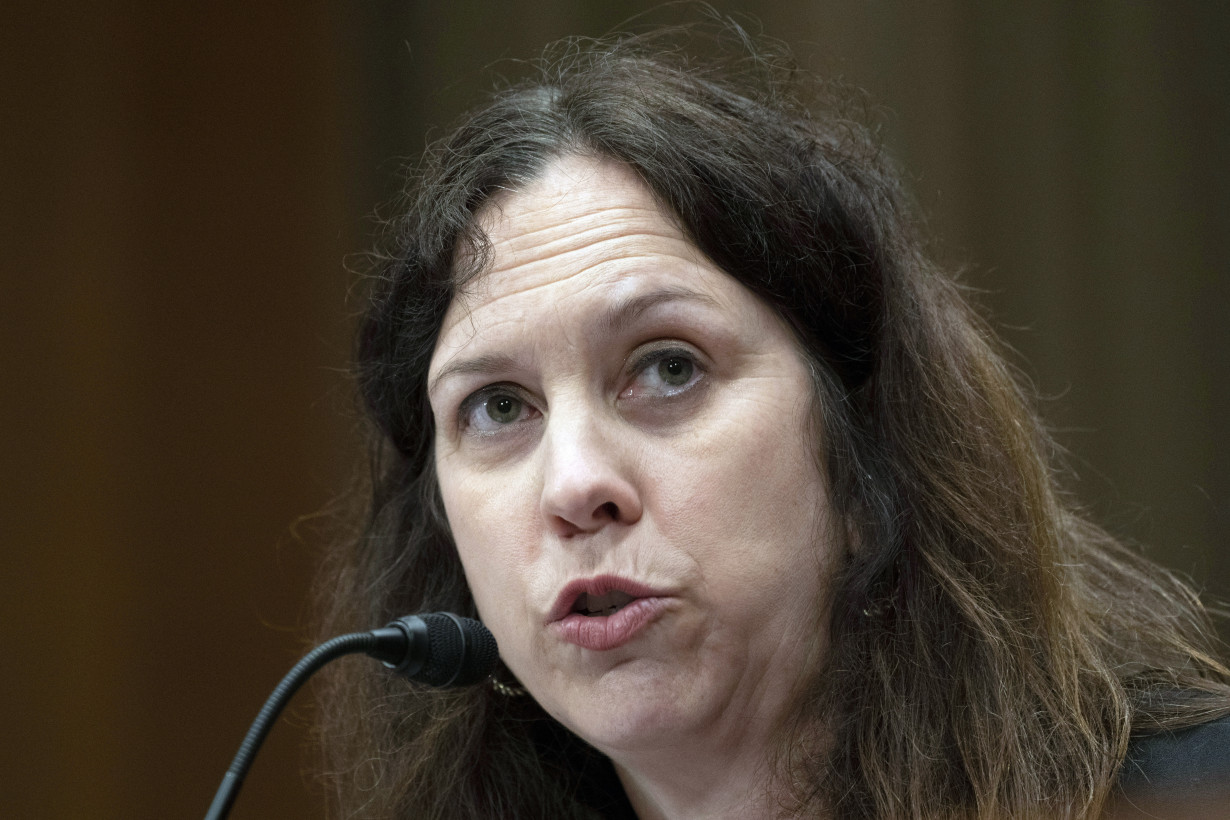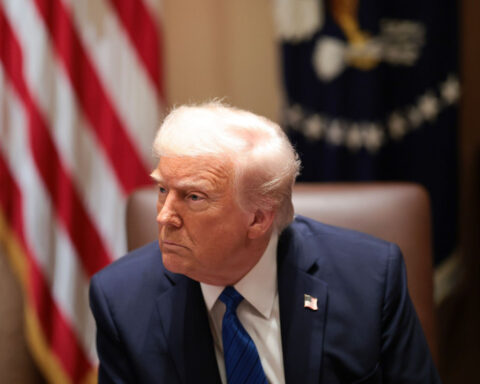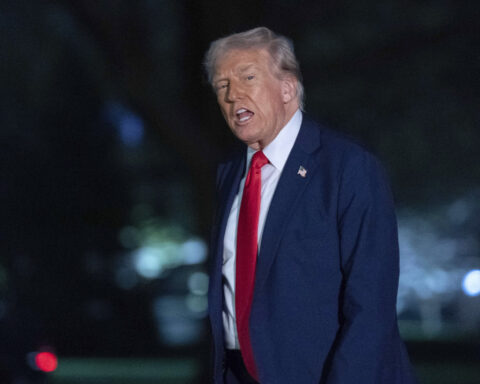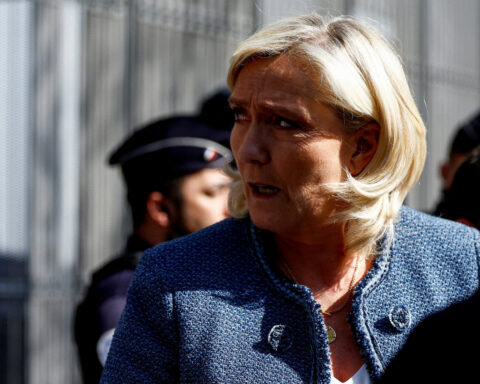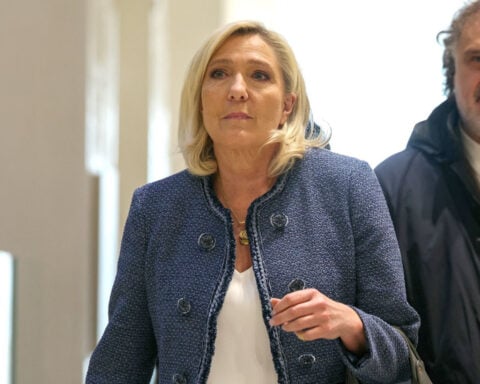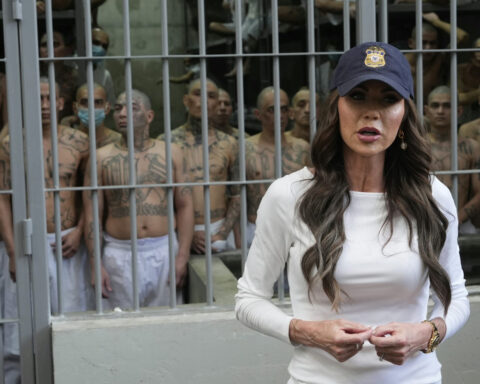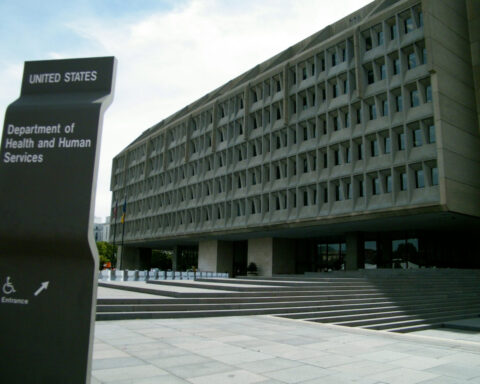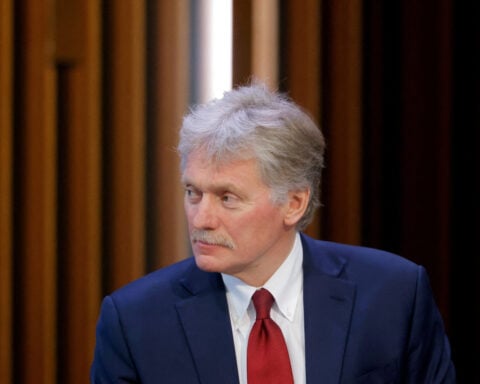WASHINGTON (AP) — As President Donald Trump moves to overhaul the federal government with astonishing speed, he has wreaked havoc on one agency long known for its nonpartisanship and revered for its mission: the National Archives and Records Administration.
The independent agency and its trove of historic records have been the subject of Hollywood films and the foundation of research and policy. It also holds responsibilities in processes that are crucial for democracy, from amending the Constitution to electing a president. As the nation’s recordkeeper, the Archives tells the story of America — its founding, breakdowns, mistakes and triumphs.
Former employees of the agency now worry it's becoming politicized.
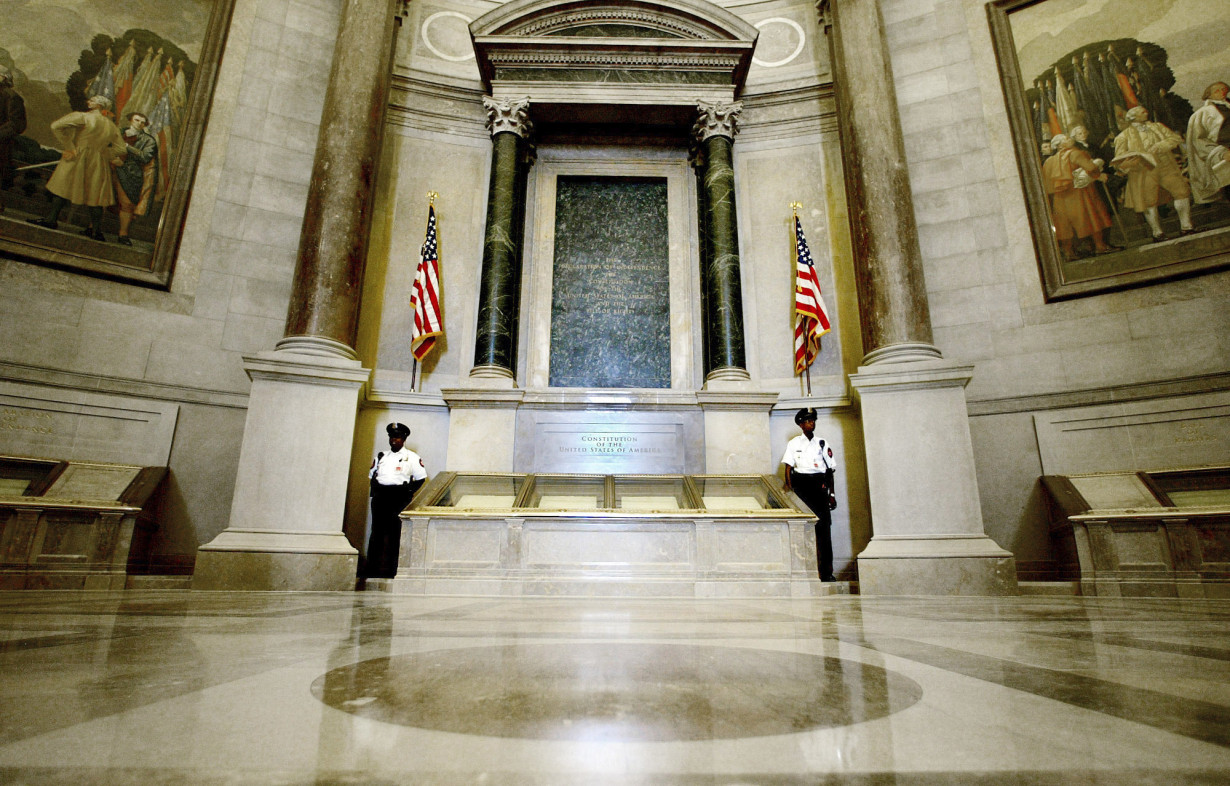
Earlier this month, the Republican president abruptly fired the head archivist. Since then, several senior staffers at the Archives have quit or retired. An unknown number of staffers at the agency also have accepted government-offered deferred resignations, often known as buyouts, or been fired because of their probationary status.
What does the National Archives do?
Everything that happens in the government, domestically and internationally, generates records. The National Archives is their final landing spot.
Among those are the nation’s precious founding documents, including the original Constitution and Declaration of Independence. The collection also includes military personnel files that allow veterans to get benefits, employment and tax records, maps, drawings, photographs, electronic records and more.
The archivist of the United States is the steward of those billions of records, which belong to the American people, said James Grossman, executive director of the American Historical Association.
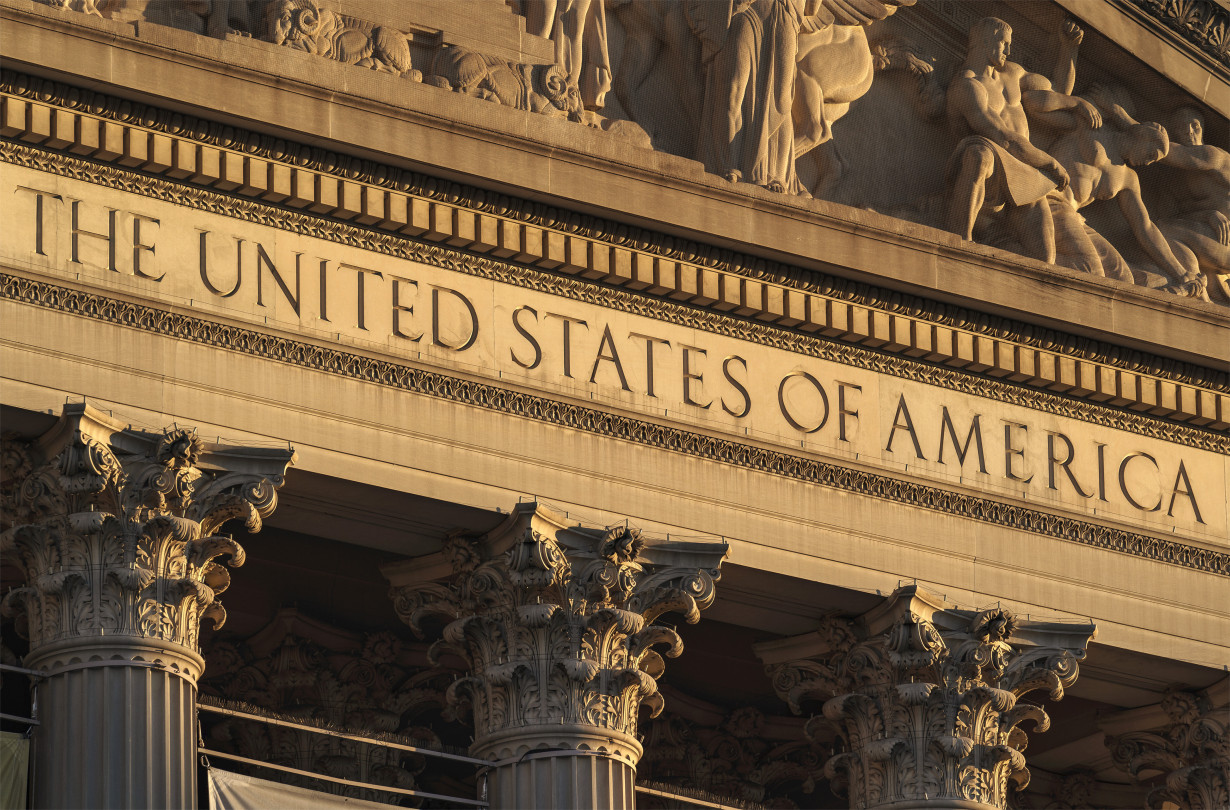
Besides its museum in Washington, the agency manages field offices and presidential libraries around the country. It also authenticates and certifies new constitutional amendments and houses the Office of the Federal Register, which, among other things, verifies electoral certificates during presidential elections.
Why is Trump targeting the agency?
The president didn’t give a public reason for firing archivist Colleen Shogan, but he has long held a grudge against the agency for notifying the Justice Department of his alleged mishandling of classified documents after he left office following his first term.
That 2022 referral led to an FBI search of his Mar-a-Lago estate in Palm Beach, Florida, and a federal indictment against him. A federal judge dismissed the case last year.
Shogan wasn’t working for the agency at the time. Still, Trump fired her abruptly on Feb. 7 without giving her a reason, she said in a social media post.
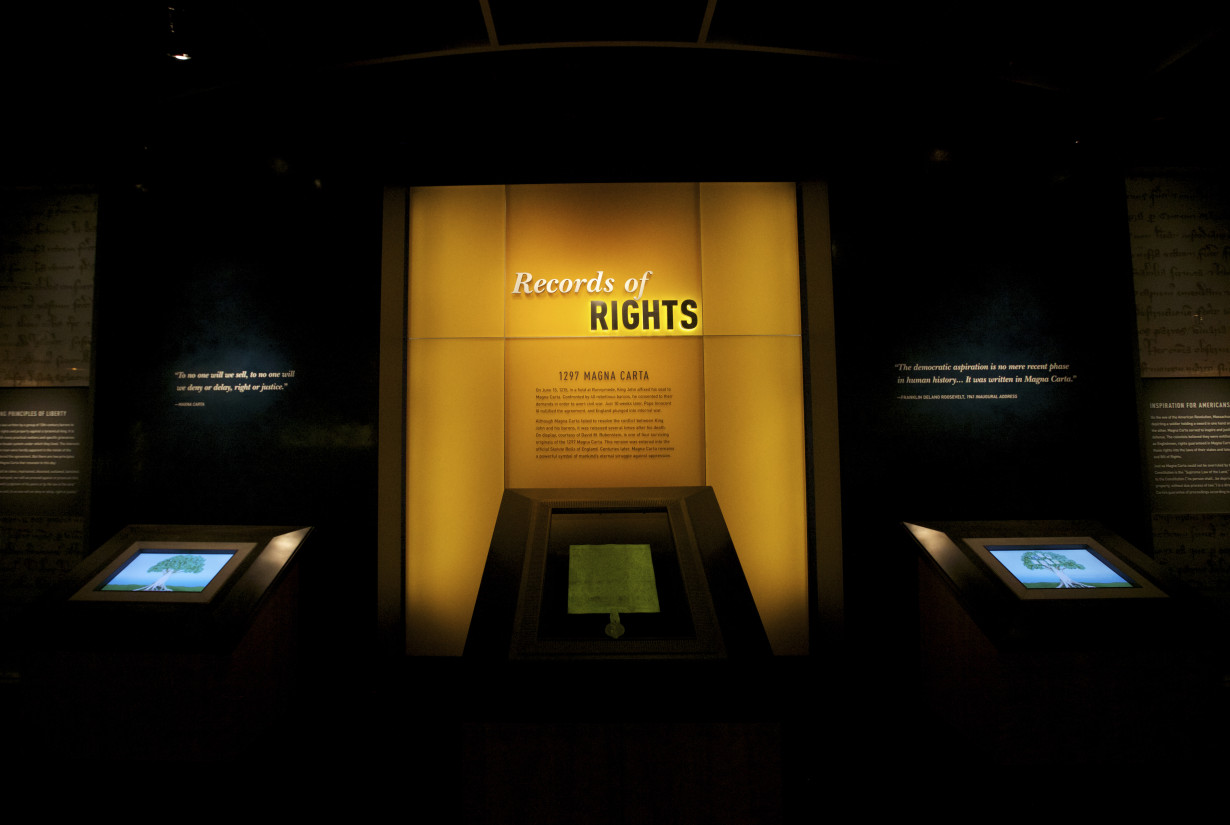
The Society of American Archivists said its leadership was alarmed by the news and said the firing with no stated cause "does harm to our nation and its people."
The president is allowed to dismiss the head of the agency, but none has done so quite as brazenly as Trump. The closest historical precedent was in 2004, said Anthony Clark, who oversaw the National Archives as a senior staffer on the House Oversight Committee and authored a book about presidential libraries.
That year, archivist John Carlin resigned and revealed in a letter to a U.S. senator that he had been asked to do so by President George W. Bush's Republican White House.
The president is required by law to notify Congress of the reasons for the firing, but he isn’t bound to any timeline. House and Senate leaders didn’t respond to The Associated Press' inquiries about whether Trump had shared that information. The Senate committee that has appropriations jurisdiction over the Archives was not told of Shogan's firing beforehand, nor has it been told of any replacement, a congressional staff member said.
What’s happening inside the Archives now?
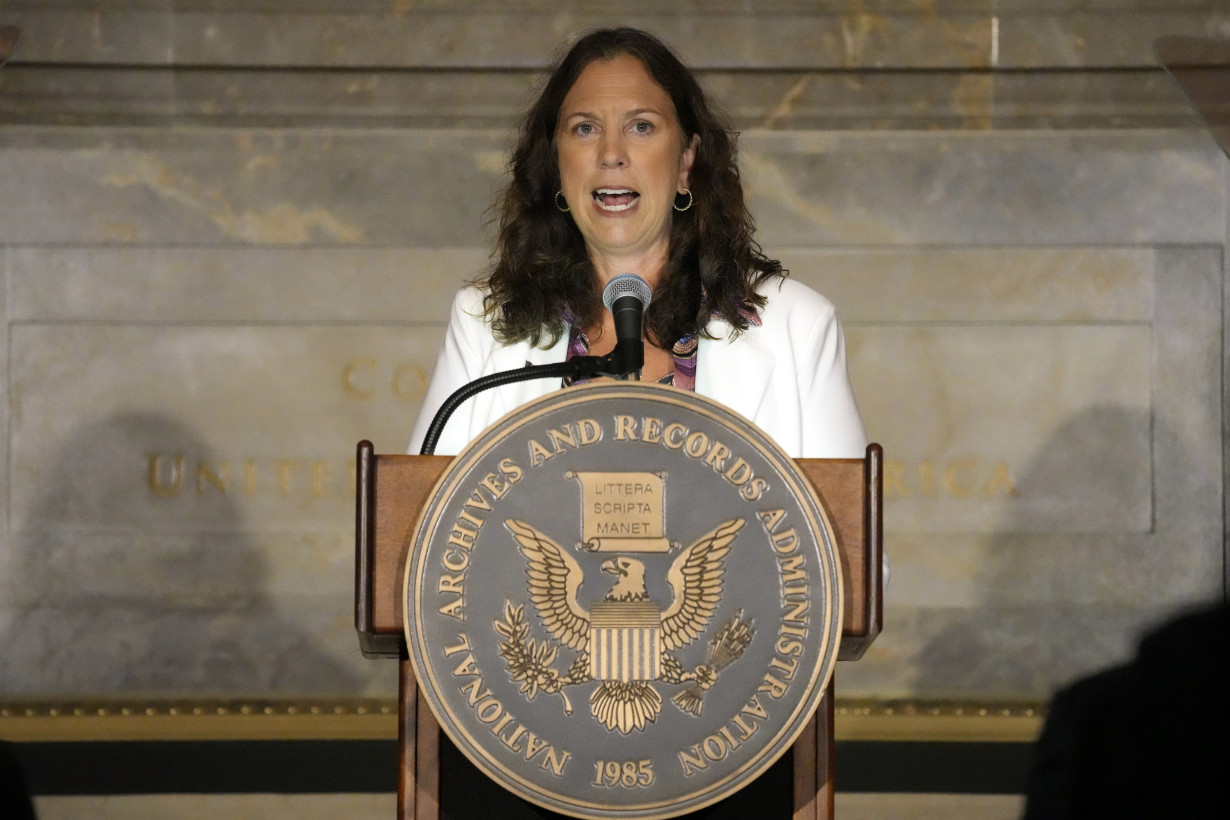
Trump announced that Secretary of State Marco Rubio is serving as the acting archivist, while former Nixon Foundation President Jim Byron, on leave from the foundation, is handling the agency’s day-to-day business as a senior adviser.
William “Jay” Bosanko, the deputy archivist who had been slated to take over Shogan’s duties until the Senate approved the president’s new pick, has retired, said Andrew Denham, Shogan’s former executive assistant. Denham left the agency last week through a government buyout. He said other senior staff also have left, including a former senior adviser to Shogan, the chief of staff and the agency’s inspector general.
Denham said he believes Bosanko and other senior staffers were pushed out. Bosanko had been part of the agency’s senior executive team during the FBI search of Mar-a-Lago.
“From my perspective, it was a witch hunt for anybody who was in a leadership position at the National Archives that their jobs were no longer safe,” Denham said. “He was no longer welcome.”
What's next?
In an email last week to National Archives staff reviewed by the AP, Byron emphasized the importance of the agency's work and specifically its transparency. He called attention to the Declaration of Independence's upcoming 250th anniversary, as well as Trump's executive order for the release of files related to three major political assassinations, which the agency will facilitate.
Byron's email also said the National Archives is “strategically examining its operations agency-wide to ensure that it makes the best use of the funds it has been given by the American taxpayers and that all of its operations closely track with its mission and Congressional statutes.”
The agency did not respond to AP inquiries about how staffing cuts have affected its work or about what its internal review will entail.
Next, Trump is tasked with picking a new head of the Archives, whom the Senate will vote to confirm.
“I’m hoping that they get an archivist who is nonpartisan, who looks at the letter of the law when making the decisions that need to be made,” Denham said. “This is tough, because I think he’s putting people in positions who are going to do his will.”
The White House did not respond to a request for comment.
What influence could a new archivist have?
The person leading the National Archives has discretion over which records to preserve and how. The risk is that an archivist whose primary loyalty is to Trump could be biased in those decisions, leaving behind a skewed picture of history for future generations, according to several past employees of the Archives who talked to the AP.
That could affect what's preserved from Trump supporters' Jan. 6, 2021, attack on the U.S. Capitol, for example, or the current overhaul of federal agencies, said Thomas Brown, whose work at the agency before he retired included some of its early efforts to identify and preserve electronic records.
"It pains me to think that I spent 30 years trying to build something and enhance the reputation of the National Archives to see it pulled down by political ideology," he said.
Trump’s words and actions demonstrate he will choose a new archivist who will be loyal to him, Clark said.
“So when there is a conflict between what the president wants and the law requires — say, regarding access to presidential records, destruction of records, preservation of records that document the president’s duties, control of classified information throughout the executive branch, publication of the Federal Register, or the Archivist’s purely ministerial duties related to constitutional amendments and electoral votes — whoever serves as Archivist must serve his interests, and not uphold the law,” he said.
The Office of the Federal Register reviews the electoral certificates sent in from the states. The archivist wouldn’t have the authority to force the office to reject a slate of electors but could disrupt the process, said Daniel Weiner, director of the Brennan Center’s elections and government program.
“And anything that shows disruption and uncertainty in the process is not helpful for our democracy and is dangerous,” Weiner said.
A Trump-aligned archivist might also be less inclined to enforce the Presidential Records Act or ask questions if Trump leaves office with troves of classified documents, said Norm Eisen, executive chair of the State Democracy Defenders Fund.
Jim McSweeney, who worked for the Archives for about 40 years before retiring in 2022, said the agency's role is to preserve all historically valuable records, “good, bad and ugly, warts and all.”
“They can’t be whitewashed. They happened,” he said. “And they need to be present for forever, so that historians and regular citizens can learn and study these events.”
___
Swenson reported from New York.
___
The Associated Press receives support from several private foundations to enhance its explanatory coverage of elections and democracy. See more about the AP’s democracy initiative here. The AP is solely responsible for all content.

 Trump has begun another trade war. Here's a timeline of how we got here
Trump has begun another trade war. Here's a timeline of how we got here
 Canada's leader laments lost friendship with US in town that sheltered stranded Americans after 9/11
Canada's leader laments lost friendship with US in town that sheltered stranded Americans after 9/11
 Chinese EV giant BYD's fourth-quarter profit leaps 73%
Chinese EV giant BYD's fourth-quarter profit leaps 73%
 You're an American in another land? Prepare to talk about the why and how of Trump 2.0
You're an American in another land? Prepare to talk about the why and how of Trump 2.0
 Chalk talk: Star power, top teams and No. 5 seeds headline the women's March Madness Sweet 16
Chalk talk: Star power, top teams and No. 5 seeds headline the women's March Madness Sweet 16
 Purdue returns to Sweet 16 with 76-62 win over McNeese in March Madness
Purdue returns to Sweet 16 with 76-62 win over McNeese in March Madness
